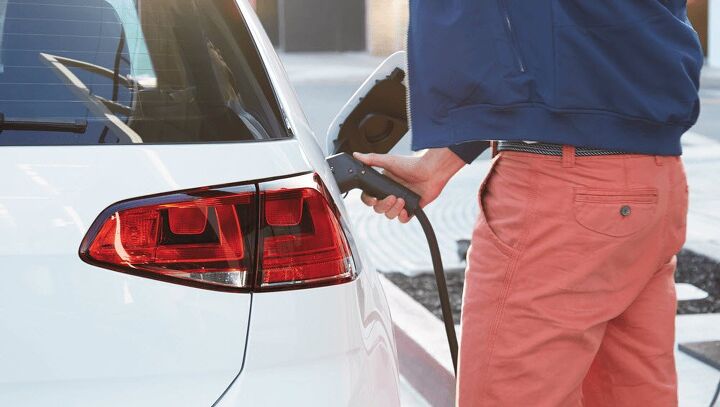#FuelRegulation
California Vows to Work Toward National Emissions Standard (While Voting to Keep Its Own)
California regulators voted on Friday to mandate an adherence to Obama-era federal vehicle emissions standards for cars sold in the state, regardless of Trump administration efforts to weaken the standards. It’s the latest salvo in a war between the Golden State and the current administration, which aims to strip California of its ability to self regulate its automotive emission rules and roll back the corporate average fuel economy for the entire country.
However, the Trump team doesn’t appear to be completely ignoring the environment. In a 500-page environmental impact statement from the NHTSA on the Safer Affordable Fuel-Efficient (SAFE) Vehicles Rule for Model Year 2021–2026, numerous inclusions acknowledge the existence of climate change. But the takeaway from the report is that the NHTSA doesn’t seem to feel that passenger vehicles will make much of a difference.
White House and California Still Discussing Emission Rules, Incredibly
Considering that the Trump administration’s Safer and Affordable Fuel Efficient (SAFE) Vehicles proposal specifically calls for the revocation of California’s power to set its own emissions rules, it’s miraculous that the Golden State is still willing to discuss the issue. But here we are.
Administration officials and members of the California Air Resources Board (CARB) emerged from a meeting on Wednesday, saying they were working toward resolving their differences over vehicle emissions, interested in establishing a single national standard, and — get this — would be happy to meet again.
Fueling the Opposition: EPA Staff Had Serious Reservations About CAFE Rollback Proposal
Staff at the Environmental Protection Agency had major disagreements over the decision to rollback corporate average fuel economy (CAFE) standards for the coming years, according to documents released last week. The matter echoes an event in May where science advisers for the EPA claimed the agency had ignored its own research in order to rationalize the push to relax fuel targets.
Both items have given ammunition to critics of the new proposal to claim the choice was politically motivated and based upon shoddy, biased research. Interesting, considering that’s exactly what the current administration said about the earlier decision to make them more stringent.
Led by the National Highway Traffic Safety Administration and backed by EPA, the current proposal seeks to keep fuel economy standards at 2020 levels — rather than continuing to elevate them. The arguments made for the move revolved around existing consumer preferences and saving lives. However, some of the agency’s staff seemed to be concerned with the NHTSA’s data and claimed it had overstepped by including the EPA in documents it didn’t approve of.
EPA and NHTSA Officially Release Fuel Economy Plan, California Decidedly Pissed
After months of discussion, circulating drafts, and arguing with the State of California, the Environmental Protection Agency and National Highway Traffic Safety Administration formally unveiled their plan to rewrite the existing corporate average fuel economy (CAFE) rules and replace them with something far less stringent.
The proposal would freeze the presiding standards in 2020 under the “Safer Affordable Fuel-Efficient (SAFE) Vehicles Rule for Model Years 2021-2026 Passenger Cars and Light Trucks” plan, which is a mouthful.
It also moves to revoke California’s authority to set its own mandates, as predicted. The Golden State made it clear that it wants to maintain the Obama-era limits. However, the proposal includes a section emphasizing the importance of a single national standard, saying it would seek to withdraw the waiver granted to California in 2013.
“Attempting to solve climate change, even in part, through the Section 209 waiver provision is fundamentally different from that section’s original purpose of addressing smog-related air quality problems,” reads the proposal. “When California was merely trying to solve its air quality issues, there was a relatively-straightforward technology solution to the problems, implementation of which did not affect how consumers lived and drove.”
Replacement EPA Boss on Board With California Gas Confab
Following Andrew Wheeler’s appointment as acting head of the Environmental Protection Agency, he extended an invitation to the California Air Resources Board to discuss emission regulations — a matter which former EPA administrator Scott Pruitt seemed less inclined to discuss with the state.
Mary Nichols, chairman of the board, said Wheeler reached out to state officials and the pair agreed to hold a meeting in Washington. It’s a slight easing of tensions in the cold war between D.C. and Sacramento.
Automakers Formally Take Aim at California's Zero-emission Vehicle Mandate
Compared to the rest of the United States, California is on the bleeding edge of government-appointed environmentalism. When the Trump administration suggested reexamining Obama-era fuel economy and emissions standards, The Golden State was the first to complain, saying it would not be adjusting its goals just because the rest of the country may. It also has pretty serious mandate on zero-emission vehicles — one that forces 15 percent of all new vehicles sold in the state to use zero-emission powertrains by 2025.
While California isn’t alone — nine other states have followed its lead since Trump took office — it is the keystone star on America’s flag pushing to maintain expand fuel regulations. Automakers have noticed and, despite previously having agreed with President Obama’s emission standards several years back, they’re launching a counter-offensive.
Arguing before a U.S. House panel, the Association of Global Automakers complained that California’s ZEV mandate threatens a single national standard for fuel economy.





















Recent Comments